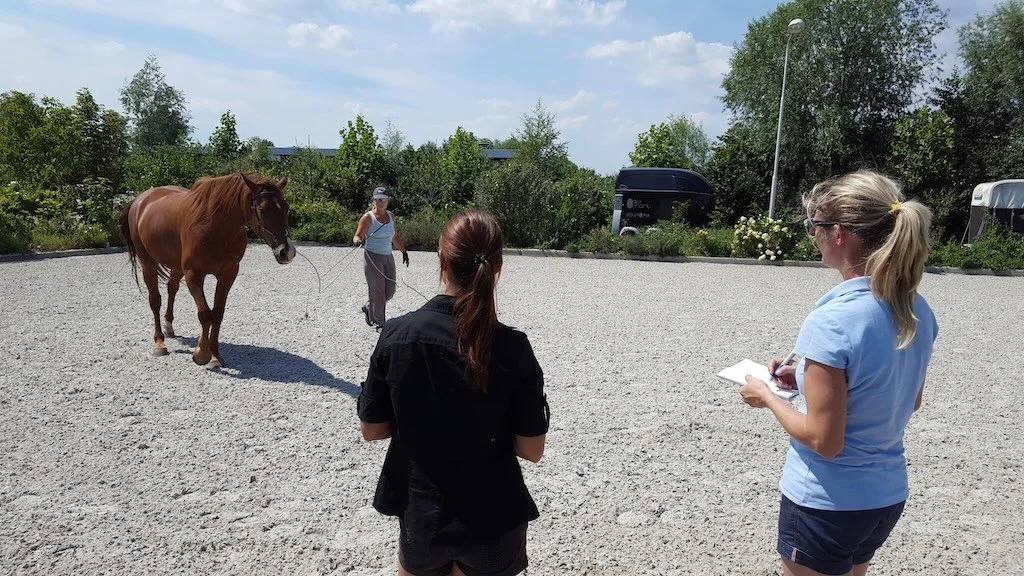How to pick your equine professionals
Here are some things to be mindful of when picking an equine professional to work on your horse.
Cooperation between equine professionals is a must.
Choosing a team of professionals to help you on your journey with your horse can be tricky sometimes. In every sphere of equine management, there are people whose views vary greatly. There are hoof care professionals that have opposing views, bodyworkers that take completely different approaches, trainers who employ a very different array of methods, and don't even get me started on saddle fitters. Knowing who to trust and who would be the best fit for your horse can be a daunting task. Here are some red and green flags to look out for.
Be wary of someone who:
Promises quick results before even seeing your horse. Training, managing and rehabilitating horses is very rarely a super straightforward thing. If the professional is promising that he or she can resolve an issue you are having within one session, that could be an indication of lack of understanding the complexities of taking care of horses.
Is impatient with your horse or causes unnecessary stress. I believe that stuff like hoof care, bodywork and training should be something we do with the horse, not to the horse. If the professional shows a lack of patience or is doing something to the horse, despite the horse being scared or stressed, think twice about trusting them. Sure, sometimes the horse will be uncomfortable, especially in the rehab process, but the professional should be able to explain why this is necessary and keep those moments short.
Badmouths other professionals or oversteps his professional lines. Horse care is a group effort and team work is crucial if we want our horses to be happy and healthy. Professionals who claim they can solve all your problems without cooperating with other professionals, probably don't have enough knowledge. I would also be wary of someone who badmouths his colleagues.
Look for someone who:
Explains everything and answers your questions. A good professional knows that owners need to understand what is being done and why. This enables them to make good decisions in the future and be better horse guardians. A good practitioner can explain complex subjects in a way that's understandable and does not leave you feeling stupid or uneducated.
Takes an individualistic approach. Every horse is an individual and needs a slightly different approach. Figuring out what is needed in a specific situation is a big part of doing the job well. A good practitioner will ask questions about all aspects of the horse and will take time to figure out what works. He or she will also take your horses opinion into consideration and make the experience as pleasant as possible.
Works well in a team. A good professional knows when to refer the horse to a different professional and will communicate readily with them to reach the best solution. Cooperation between veterinarians, trainers, hoof care providers and bodyworkers is especially important. A good professional will not hesitate to reach out to a colleague or refer the horse to them, if they feel that their approach might suit the horse better.
Obviously, there are many other considerations to take on board when deciding which professional to pick, but these are some of the more common things to keep an eye out for. At the end of the day, your horse will be the judge of whether or not someone's approach works or not.
